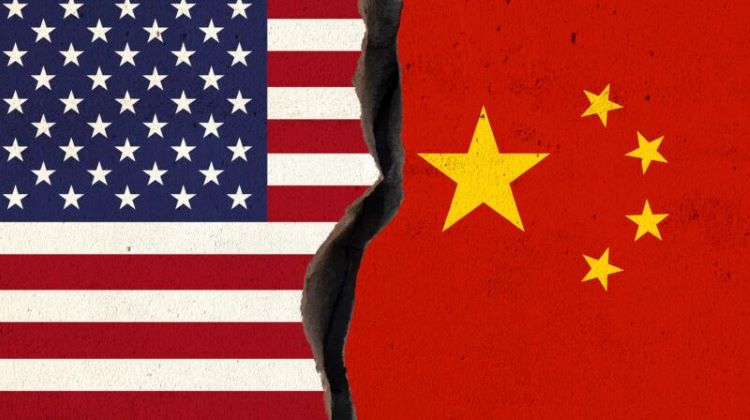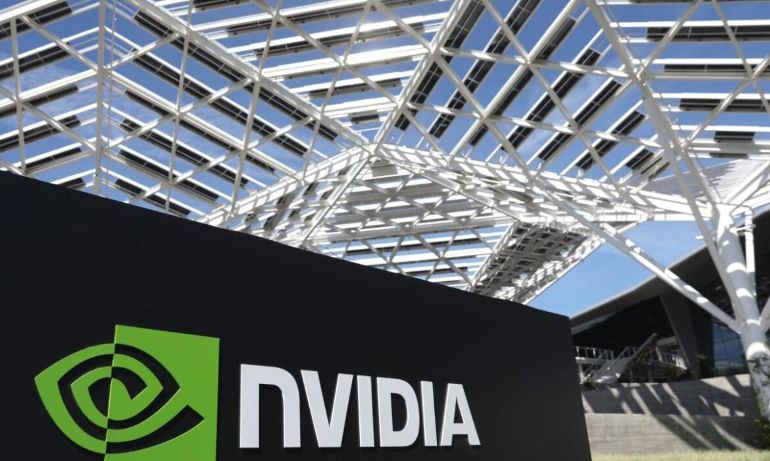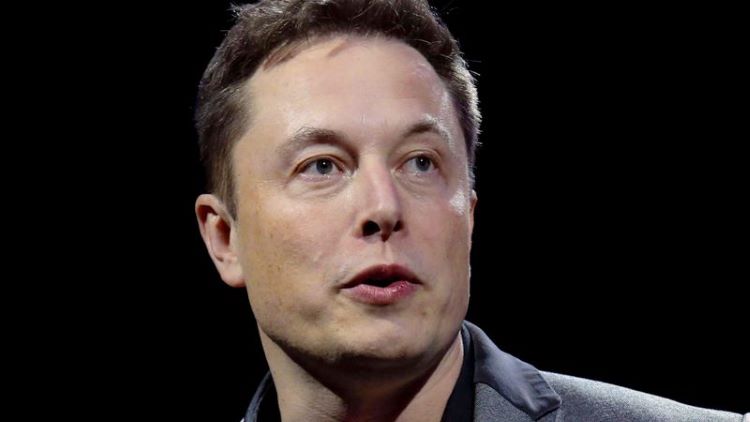Nandini Roy Choudhury, writer
Brief news
- Max Tegmark warns that the race for artificial general intelligence (AGI) between the U.S. and China could undermine control by governments, particularly in China, where AGI poses a threat to Communist Party authority.
- Both nations are competing for AI supremacy while also recognizing the need for regulations to prevent uncontrollable AGI development.
- China is advancing its AI capabilities while implementing regulations to maintain control, reflecting a dual focus on geopolitical power and domestic innovation.
Detailed news
China may surpass the United States in its pursuit of artificial intelligence that surpasses human capabilities; however, this innovative technology may also undermine the Communist Party’s control over the world’s second-largest economy.
That is the perspective of Max Tegmark, a distinguished AI scientist, who stated on CNBC that artificial general intelligence (AGI) is closer than we previously believed. He also characterized the narrative of a geopolitical conflict between the United States and China in which they are competing to develop the most intelligent AI as a “suicide race.”
Although there is no definitive definition of AGI, it is generally understood to refer to AI that is capable of surpassing human intelligence.
The popularity of applications such as ChatGPT, which enable users to ask a chatbot for answers, has skyrocketed. However, a number of AI companies are attempting to advance to the next level by creating AI that possesses human-level intelligence.
According to Sam Altman, the CEO of OpenAI, AGI could be accomplished by 2025. Although there are other prominent figures in the technology sector who believe that AGI is imminent, a significant number of others believe that genuine AGI is still a long way off.
In addition to the competition between technology companies, there is a geopolitical conflict between the United States and China for control of sectors ranging from artificial intelligence to semiconductors. Tegmark argued that this is not the appropriate perspective, as it is frequently depicted as a competition to be the first to adopt the most recent technology.
“In an interview with CNBC last month, I referred to this battle, this geopolitical battle to establish AGI first, as a ‘hopium war.'” “I refer to it as the ‘hopium war’ because it is propelled by the delusional belief that we can manage AGI.”
Tegmark is the president of the Future of Life Institute, a think tank that authored a letter last year urging AI laboratories to suspend the development of advanced AI systems. Tesla was among the prominent technology companies that signed the letter.
Elon Musk, the CEO. Tegmark is apprehensive about the rapid advancement of AI, which has few safeguards in place and no means of control should it begin to surpass humans.
“We are significantly closer to constructing AGI than to determining how to regulate it.” Tegmark stated, “And that implies that the AGI race is not an arms race; it is a suicide race.”
Is China concerned about AGI?
According to Tegmark, China has minimal motivation to construct AGI. The AI scientist recalled a narrative in which Elon Musk informed him of a “high-level meeting” that the Tesla CEO had with Chinese government officials in early 2023. Tegmark stated that Musk informed the Chinese government that the Communist Party would not have control over China if AGI were to be constructed, but rather by the superintelligence.
A robust response was received by [Musk]. “Some of them had not considered that, and less than a month later, China issued its first AI regulations,” Tegmark stated, alluding to the new regulation that governs generative AI.
China’s ministry of foreign affairs was unavailable for comment on the anecdote for an immediate period. Additionally, CNBC reached out to Tesla to request a response from Musk.
“It is unnecessary for the United States to persuade China to refrain from constructing AGI.” Tegmark stated that the Chinese government would have an incentive to refrain from constructing it because they desire to maintain control, even in the absence of the United States.
The last thing they desire is to relinquish that authority.
China’s AI strategy
The Chinese government attributes strategic importance to AI. The most significant companies in the country, including Alibaba, Huawei, and Tencent, have been creating their own AI models. Additionally, the capabilities of those models are expanding.
China was also one of the first countries to implement regulations regarding various aspects of AI. The internet in the country is subject to extensive censorship, and any information that appears to contradict Beijing’s ideology is blocked. OpenAI’s ChatGPT is prohibited, and it is widely recognized that chatbots in China are prohibited from responding to inquiries regarding politics and subjects that the Communist Party considers sensitive.
Therefore, the nation’s strategy regarding AI is an endeavor to promote innovation while simultaneously balancing its own interests. Analysts anticipate that China will adopt a comparable strategy with respect to AGI.
“I would not anticipate that China would restrict its own AI capabilities in response to concerns that such technologies could undermine Party control.” Kendra Schaefer, a partner at consultancy Trivium China, stated to CNBC that numerous predictions regarding the internet were ultimately disproven.
“While establishing a techno-regulatory apparatus that restricts the domestic activities of AGI, China will endeavor to establish a monopoly on AGI.”
AI conflict between the United States and China
In spite of Tegmark’s assertion that the quest to construct AGI is a “hopium war,” geopolitics remains a central concern in the development of the technology between the United States and China.
Abishur Prakash, founder and geopolitical strategist at The Geopolitical Business, a Toronto-based strategy advisory firm, stated that China is currently observing AI through a dual-lens: geopolitical power and domestic development.
“China aspires to alter the global power dynamic by implementing AI, such as the development of a novel export model.” Prakash stated to CNBC that China is also interested in enhancing its economy through innovative methods, including government efficacy and business applications.
The United States has implemented a policy of attempting to limit China’s access to critical technologies, particularly semiconductors such as those manufactured by Nvidia, which are essential for the development of more sophisticated AI models. China has responded by endeavoring to establish its own semiconductor industry.
Will the United States and China collaborate on AI regulations?
Technologists have issued cautionary statements regarding certain hazards and hazards that may arise upon the eventual arrival of AGI. One hypothesis posits that AI will be capable of independently designing new systems and enhancing itself in the absence of guardrails.
Tegmark is of the opinion that the United States and China will both recognize any potential dangers, necessitating that their respective governments establish their own regulations regarding AI safety.
“So my optimistic course of action is for the United States and China to unilaterally implement national safety standards in order to prevent their own companies from causing harm and constructing uncontrollable AGI. This is not to appease the rival superpowers, but rather to safeguard themselves,” Tegmark stated.
“However, following that, there will be a fascinating phase in which the United States and China will contemplate how to ensure that North Korea does not construct AGI or any other weapon.” Additionally, the United States and China are now motivated to encourage the rest of the world to participate in an AGI moratorium.
In fact, governments are currently collaborating to establish regulations and frameworks for AI. The United States and China were both in attendance at an AI safety summit that was hosted by the United Kingdom last year. The purpose of the summit was to deliberate on potential guardrails around the technology.
However, the regulation and rules surrounding AI are presently fragmented. The AI Act, the first significant global law regulating the technology, was implemented by the European Union this year. While numerous other nations have yet to establish any regulations, China has its own set of regulations.
Others share Tegmark’s aspiration for AI safety coordination.
“Nations will be ideally motivated to come together and mutually self-regulate when the dangers of competition are greater than the rewards,” Schaefer of Trivium China stated.
“Indeed, there is a desire on the part of Beijing to establish a global governance body, as some Chinese policymakers have advocated for addressing that potential issue and establishing an international governance body under the UN, similar to the International Atomic Energy Agency,” she stated.
Source: CNBC news



